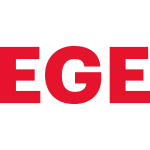Financial Times : Fears rise of growth in industrial espionage
Fears rise of growth in industrial espionage Financial Times
By Peggy Hollinger in Paris and Bernard Simon in Toronto
Published: January 7 2011 19:32
It is the end of the working day on one of Michelin's most sensitive research sites, and the teams who have been working on the group's newest tyre are ready to go home. But before they can quit the premises, they must be searched for any confidential documents.
This is routine for a company caught up in the fierce daily battle for sales, where competition is ruthless and global, and information is all too easily lost.
?We have to protect our advance to ensure the survival of the company,? said Fabienne de Brebisson, spokeswoman for Michelin.
Renault's decision this week to suspend three senior executives in a case of possible industrial espionage has raised the question of whether technology theft is increasing as developing countries seek to build their own industries capable of competing on the global market.
France's intelligence service, the DCRI, has launched a probe into the Renault affair, while concern over industrial espionage appears to be mounting in other developed countries.
The head of the Canadian Security Intelligence Service this week warned that the country's politicians and others could be ?subject to threats, coercion or potential blackmail? by foreign countries aiming to gain access to sensitive technology, influence public policy or target dissidents.
According to a memo obtained by Canadian Press, spy chief Richard Fadden warned of a ?slow and methodical development of relationships that aim to affect the perspective and decision-making of those being influenced?.
In recent years, France has seen two high-profile cases, both involving the automobile industry, with cases at car parts maker Valeo and Michelin.
Christian Harbulot, the director of France's little known School of Economic War ? which trains people in the methods of economic intelligence gathering ? believes that these recent examples of technology theft are simply a return to normal practice.
If, as has been suggested, investigations find that the Renault case leads back to China, he argues that it is no different from centuries-old practice around the world.
However, in China the boundaries between companies and the state are less clear.
?For some states it is not just about selling products. It goes much further ? it is about increasing global power. We can see that very clearly with the way the Russians managed Ukranian gas supplies,? he said.
Those working in the intelligence industry say it is impossible to judge whether industrial espionage is on the rise.
?Who the hell knows? It is like asking if adultery is on the increase. You will only know when you're caught,? said one intelligence industry executive.
?One shouldn't be surprised to see Chinese companies on the list of suspects,? the executive said.
?Chinese corporates are increasingly significant players on the global stage. They are acquiring leading European brands like Volvo and spying on their rivals. That's what western car companies do. It is just one more thing they are catching up on.?


